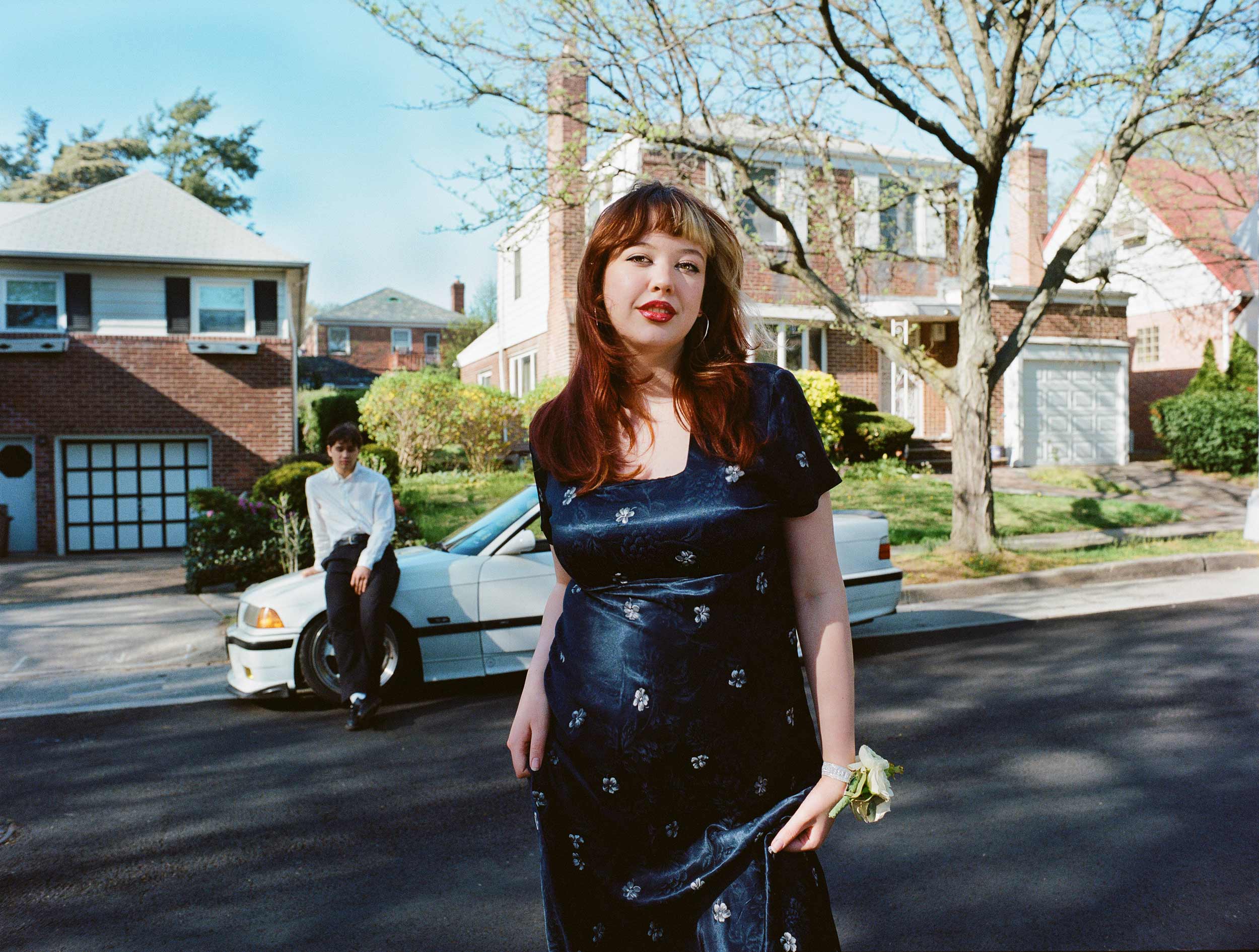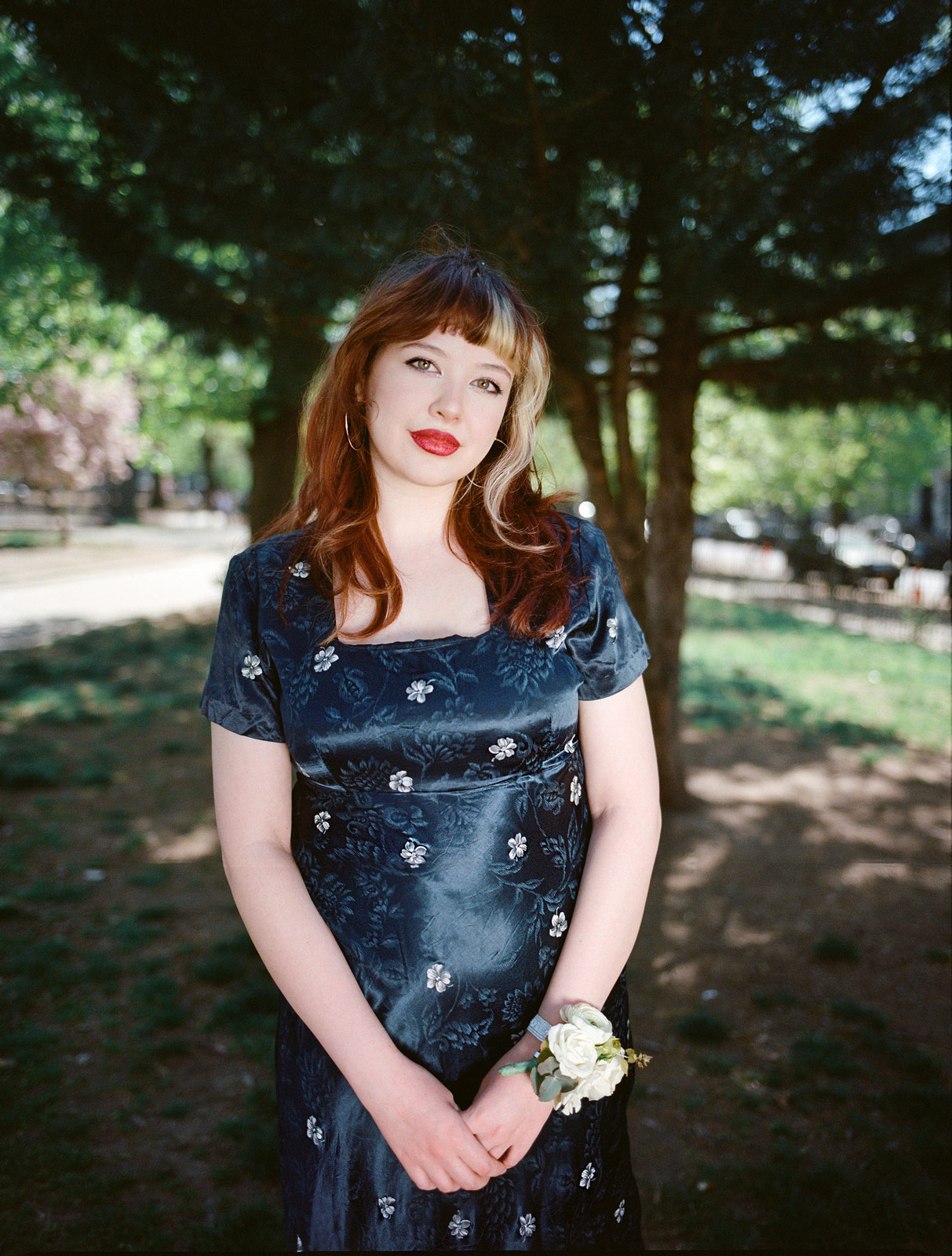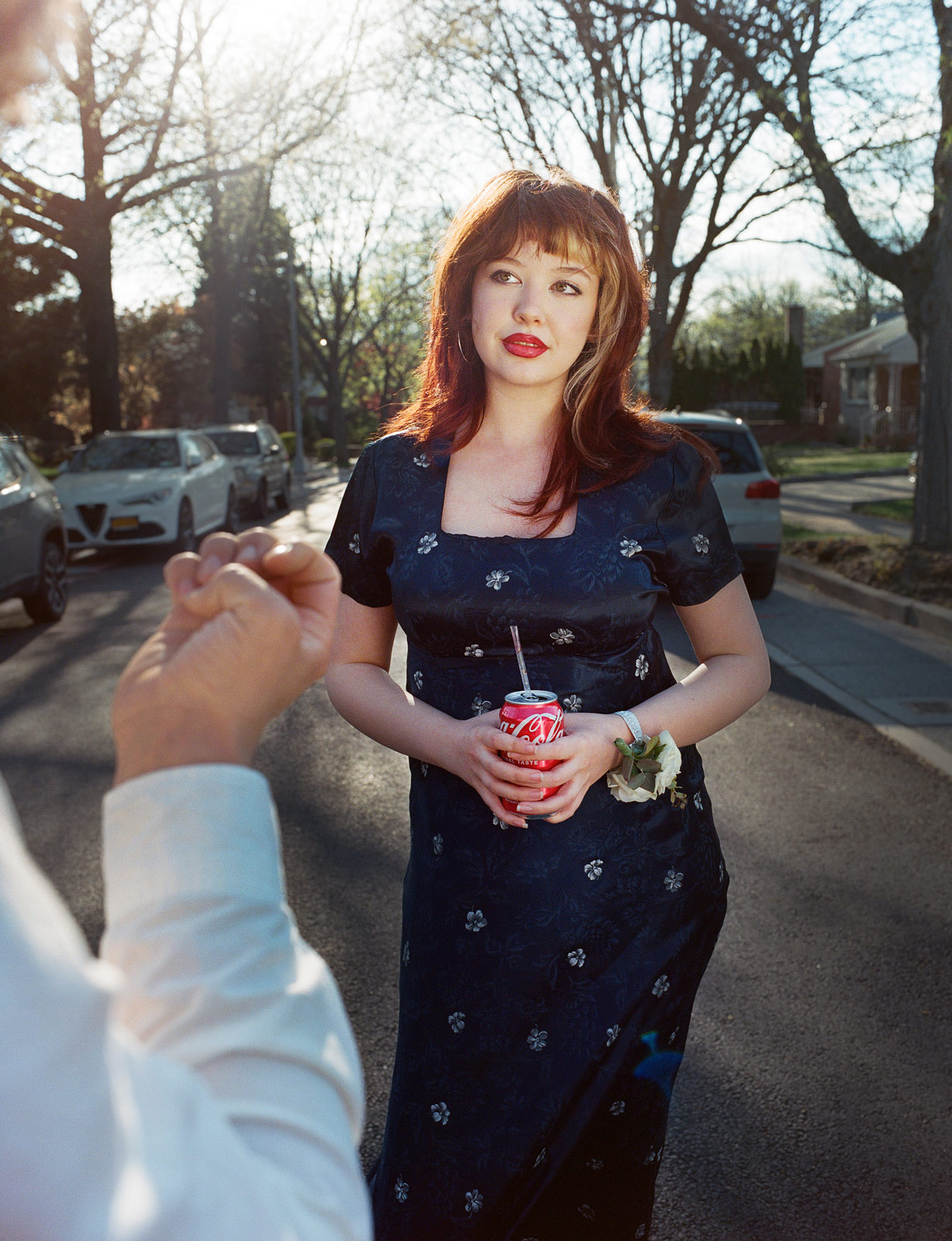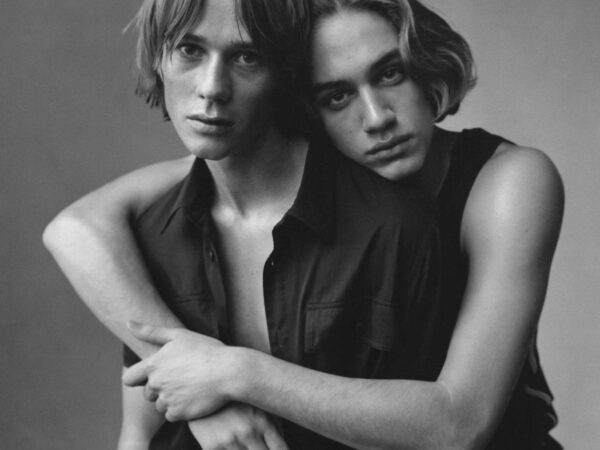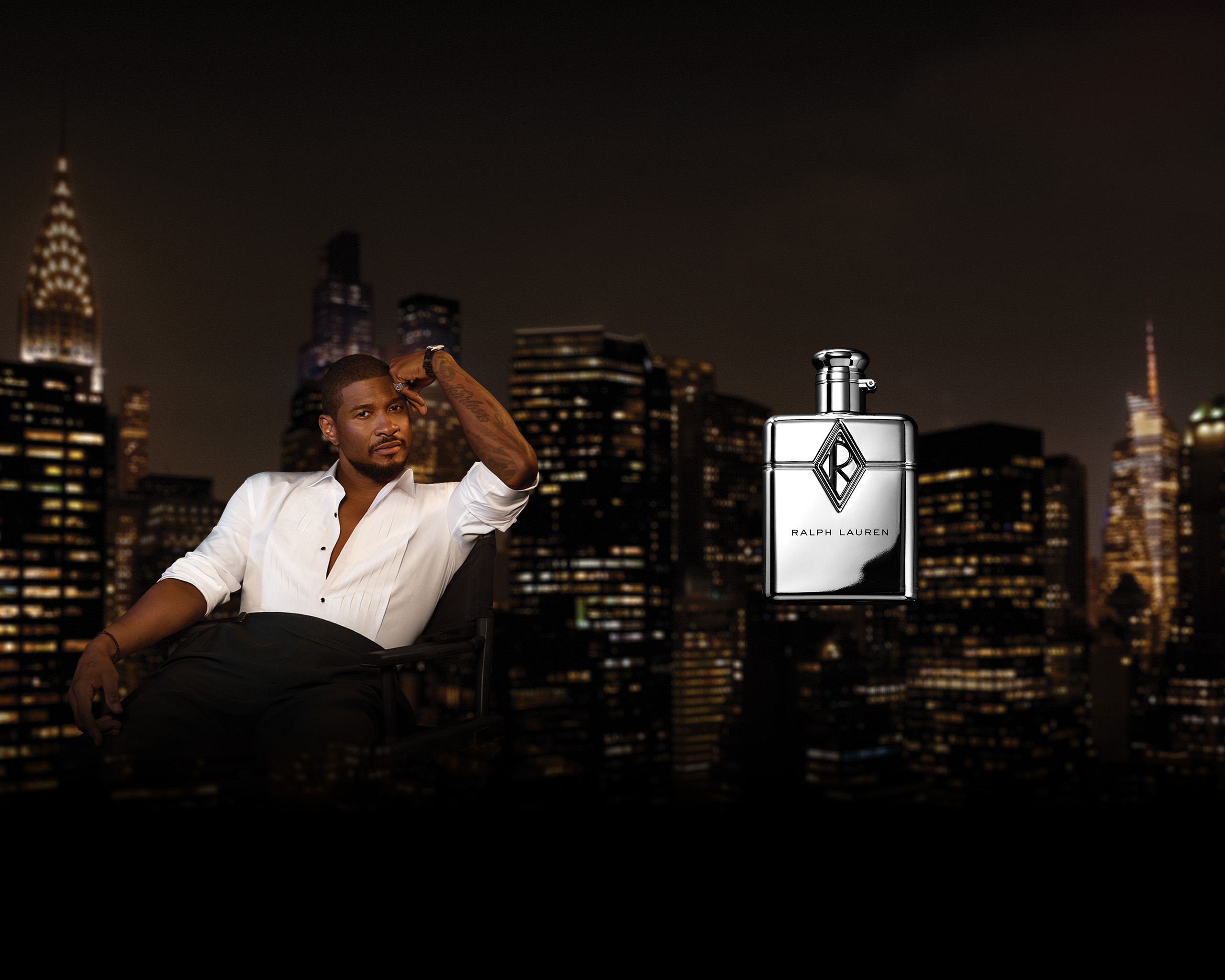The Canadian essayist joins Document to discuss online culture, the modern mental health landscape, and playing a character who just happens to be herself
Sleep at erratic hours. Sob. Fixate on others’ opinions of me / my flawed expression of womanhood. See shapes in the wallpaper. Write & rarely publish. OH GOD!
These are the words Rayne Fisher-Quann typed into her Notes app in the middle of a midnight shame spiral that, months later, would become an essay: “standing on the shoulders of complex female characters,” an incisive analysis of how depression is aestheticized and consumed. The piece—one of the many upon which the Canadian cultural critic has built her career—leverages Fisher-Quann’s lived experience with mental illness, tracing her own inner conflict to unearth something at once personal, political, and desperately relatable.
Such writing has earned her hundreds of thousands of fans, many of whom are young women. On Substack, they flock to her comment section with a common sentiment: “you always articulate everything I have ever felt but been unable to identify”; “this piece helped untangle my own half-formed thoughts on the subject better than i ever could”; “I think this essay describes the universal female experience”; or, simply, “thank you.” On her TikTok, where Fisher-Quann posts short-form video essays, the reception is similar: Countless girls, thanking her for articulating what they felt but couldn’t express.
The 21-year-old writer is among the new vanguard of bloggers whose work eludes the conventions of media (and social media) to amass an audience far larger and more dedicated than that of any magazine she’s worked at. Fisher-Quann’s essays have been read by millions, securing her speaking gigs at universities like McGill, and interviews in Vox and Vanity Fair; her Substack, Internet Princess, has over 60,000 subscribers—“at least five of which are famous, and at least two of which are really famous,” she says.
Billed as “writing to make you feel crazier & writing to make you feel sane,” Internet Princess is home to pieces like “The Pain Gap,” a “meditation on dating, maturity, and the benign psycho horrors of womanhood,” alongside analysis of influencer culture and the ideologies shaping the current mental health landscape. Fisher-Quann’s writing is piercing, personal, and above all, generous to both reader and subject—simultaneously deconstructing the ideology underpinning cultural trends, and humanizing those caught in its sway. While Fisher-Quann never set out to be a writer, her criticism now shapes online discourse, often landing on the social media feeds of women like me—which is why it’s slightly surreal to meet her in person for dinner, and talk about the internet in real life.
Camille Sojit Pejcha: You’ve written some of the most astute critiques about internet culture, while also performing your identity very publicly online. How do your own experiences, as a girl on the internet, inform your writing?
Rayne Fisher-Quann: I think the best criticism comes not from hate, but from love. The example I have in mind is how you can shrug off comments from a stranger, but when your partner calls you out for something that is so true, that’s a punch in the gut. It’s easy to find flaws with something you already feel disdain towards, and so much writing about girls on the internet is cruel and misogynistic, and comes from people who don’t know what the fuck they’re talking about—whereas, I care about these things because I’ve lived it. I love girls on the internet! I think girls on the internet are the most fundamental arbiters of culture, and the most interesting people in the world.
Camille: Can you tell me a little about how your audience developed?
Rayne: It was really by accident; I never intended to be a writer. I don’t even really have a university education, because I dropped out after a few months. And sometimes, when people come up to me and tell me they’ve read my writing—whether it’s a stranger, or someone whose work I know—I’m like, Wait, you can read that!?
It’s funny because, on TikTok, which is where I first got a big audience, I actually made an account just to express myself and be goofy. My username is Rayne Corp; I picked that before I had any followers, because I thought it was funny: just me kind of winking at the camera about how people are turned into marketable commodities. And now, people call themselves my employees as a joke. But just recently, my manager was like, ‘Okay, so for taxes, we’re going to have to incorporate you as a small business’—so I’m becoming, quite literally, Rayne Corp.
People are sometimes like, ‘How can you write about commodification, when you yourself are a brand’? It’s often presented as a conflict by people who expect me to be ashamed, or to admit I’m not a real writer. I’m not going to say I’m not neurotic about it sometimes, but I think I’m able to write the things I do because I’m so immersed in the culture of commodification—and I think, as a writer, the thing that I’m always gonna know best is myself. Being in the midst of it gives me endless study material.
Camille: In a recent piece for i-D, you talk about the challenges of producing ethical criticism in the attention economy, and how moral policing often produces more nihilism, despite its roots in frustration with privilege and systemic injustice. Do you have any guidelines for yourself, as far as how you’ve chosen to engage with your audience, to avoid falling into those kinds of traps?
“I think girls on the internet are the most fundamental arbiters of culture, and the most interesting people in the world.”
Rayne: One of my big ones is that, especially on TikTok—if I’m doing a kind of hot take, giving an opinion on something—I usually don’t post anything until I’ve thought about it for two weeks. I think it helps me really work at ideas before I put them on the internet, and turn them into something that I can be legitimately proud of. I’ve found that, whenever I receive criticism, it affects me most when it’s criticism of something that I legitimately can’t stand by, which I know wasn’t perfect. It’s a lot less effective when I’m confident in what I’ve put out, so I really try to resist the internet trend cycle in that way.
In my experience, call-out posts perform so well because the internet really rewards that kind of aesthetic performance of feminism—calling out an individual person for their misogyny without any gesture toward real structural power or material wealth. It makes me uncomfortable sometimes, just seeing how these mechanisms reward interpersonal squabbling, which is honestly pretty antisocial and often inhumane behavior.
Camille: You’ve written about how the idea that we don’t owe anyone anything can be really harmful in interpersonal relationships, on and offline. How do you feel about this as a person with an audience—what do influencers, and writers, owe their following?
Rayne: I think it’s good when people have expectations of you; it holds you accountable, and is one of the things that gives our lives meaning. But with commercialization of personal identity on platforms like Substack, it can be a really slippery slope from that to policing their self-expression, and expecting complete and total subservience from the people whose personalities you consume on the internet. Some paid subscribers actually feel like they are, in some small part, your employer, and sometimes they get mad at you for not ascribing to their views. In those instances, I think it’s obvious that they are not consuming me; they created a version of me in their head that agrees with everything they think, and now they’re punishing me because I’m not that person.
Camille: What are some examples of how you feel, or have felt, your identity being misconstrued online?
Rayne: I’ve always tried to be really open about being the person that I am, and that nobody should expect me to be a role model. At the same time, it can be strange to see how my struggle with mental illness is interpreted by my own audience; like, if you search my name on Spotify, there are people making playlists called ‘Rayne Fisher-Quann depression era,’ or tweeting things like ‘Rayne Fisher-Quann is the perfect sad girl.’ And obviously I’ve played into that persona, but it can be hard to read, especially when so much of my adult life has been spent trying to hammer the idea into my head that I’m not an incurably sad person. I had to fight tooth and nail to prove to myself that I can be happy, that I’m not fundamentally broken or ill. It doesn’t ruin my week or anything, but I remember when I used to think it was sexy to be depressed and beautiful to starve yourself, and I never want to be the reason a young girl gets worse.
Camille: You’ve written about mental health: how it’s aestheticized, and how dominant ideology around it takes shape online. Can you share a little about what you see happening in the culture right now?
Rayne: Mental health has become such an overarching blanket term, and I think that it has become really difficult for people to envision mental illness as something that is legitimately destructive. It’s not even that it’s always being glamorized, like I talk about in ‘standing on the shoulders of complex female characters,’ but also that people are starting to see mental illness as a fun personality quirk.
I feel like there’s this idea being developed in sort of mainstream neoliberal institutions that mental illness is part of your identity, not something that makes you do harmful things to yourself or others—and that, if you ever hurt someone as a result of mental illness, that’s actually just because you’re a bad person. I’ve even seen some people say that it’s ableist or offensive to say that mental illness can lead people to behave badly or be destructive. But that’s what it does, by definition: It’s affecting the way you live your life!
Camille: I’d be curious to hear your thoughts on TikTok diagnosis culture—whether it hurts or helps or both, and the structures that have made self-diagnosis feel necessary to so many people.
Rayne: I’m empathic to the labeling and pathologization that we see on TikTok, because it’s understandable to want to be understood. We live in a society—famously!—that is not structured to meet individual people’s needs. And I think we’ve been taught that having a label that explains these things that are wrong with you is the only way to get help for the issues you’re experiencing. But diagnosis is so subjective; for example, I have gone to three different doctors, said the exact same symptoms, and been diagnosed with three different things.
Diagnosis is really not an exact science; it’s an attempt to try to help people get the best kind of support—and for some people, it can serve as a kind of cheat code. For example, there was a time when I was experiencing some health issues, and kept needing to cancel plans; it felt easier to say, ‘I have chronic fatigue’ than, ‘I’m really tired today, I can’t.’ Because that normal expression of human need is treated as being selfish, whereas the diagnosis is like a passport to being understood and empathized with.
At this point, everybody’s depressed—which isn’t to say everyone’s always in a depressive episode. But to some degree, the problems people with mental illness experience can also be part of a normal human experience. For example, I’m diagnosed with OCD, and when I talk about it to my friends, they often share how they relate, with the caveat that they could never claim to understand what I’m going through—and I’m like, ‘I think you do understand.’ I think there’s a culture that encourages people to feel it’s invalid to relate to one another without sharing the same diagnosis. I think that, sometimes, the diagnosis culture can encourage people to wall themselves off in a silo of illness and suffering: this idea that the things you do during your darkest moments are the things that you should be punished for your entire life. It goes back to cultural puritanism, this idea that the only way to be virtuous is to never do wrong—and that encourages people to isolate themselves, because that’s the only way you can never risk hurting anybody. But part of loving people is, inevitably, hurting them! Of course, the goal is to learn how to hurt people less—but it’s unavoidable.
Camille: You’ve said that social media platforms like TikTok served as a place to let loose and be silly, at least in the beginning. Do you feel that having such a huge audience has changed the way you conduct yourself online? Can the internet even serve as a place for self-expression?
Rayne: Everybody on the internet is playing a character; I just happen to be playing a character that is very heavily based on who I am in real life. But I don’t really believe in an intrinsic self; we are different people in different contexts.
I don’t think it’s possible to be completely authentic online; anyone who claims they’re doing that is lying to you. It almost feels more honest when you can tell somebody is playing this character; like, there’s this British influencer, Lydia Millen, who lives in a country house, and basically does this cosplay in a sprawling estate, and her house is full of newly-purchased antiques. She has millions of followers who love that content! I would much rather have somebody admit that what they’re creating is artificial. There’s a weird honesty in living a lie.
At the same time, I think I took naturally to social media because I’ve always felt comfortable with sharing every part of myself. This isn’t something that I love about myself necessarily, but I’m a natural exhibitionist. I’ve always been totally desperate for attention. When I was a little kid, the most frustrating thing for my parents was that I used to take off all my clothes in public and walk around naked, because I just wanted people to laugh and look at me. I think wanting to entertain people has always been a fundamental driver in my life—or, in an even less thoughtful way, just wanting to be looked at. I’ve always told stories to my friends the same way that I tell stories on the internet: I am going to exaggerate the details to make it even funnier. This is just my personal philosophy! Some people hate it, and I don’t understand why, because I think entertaining is such a selfless act—and at the end of the day, everybody wants to hear a good story.



